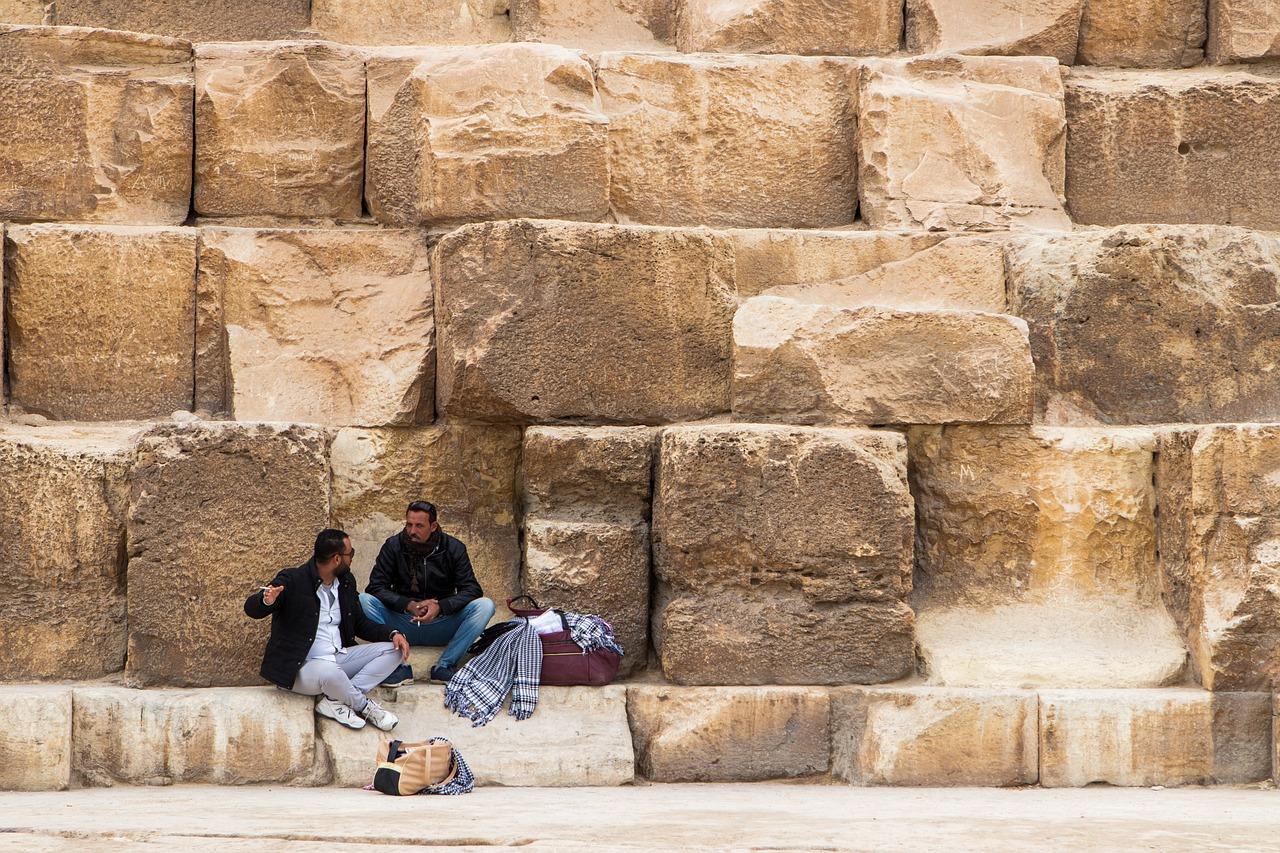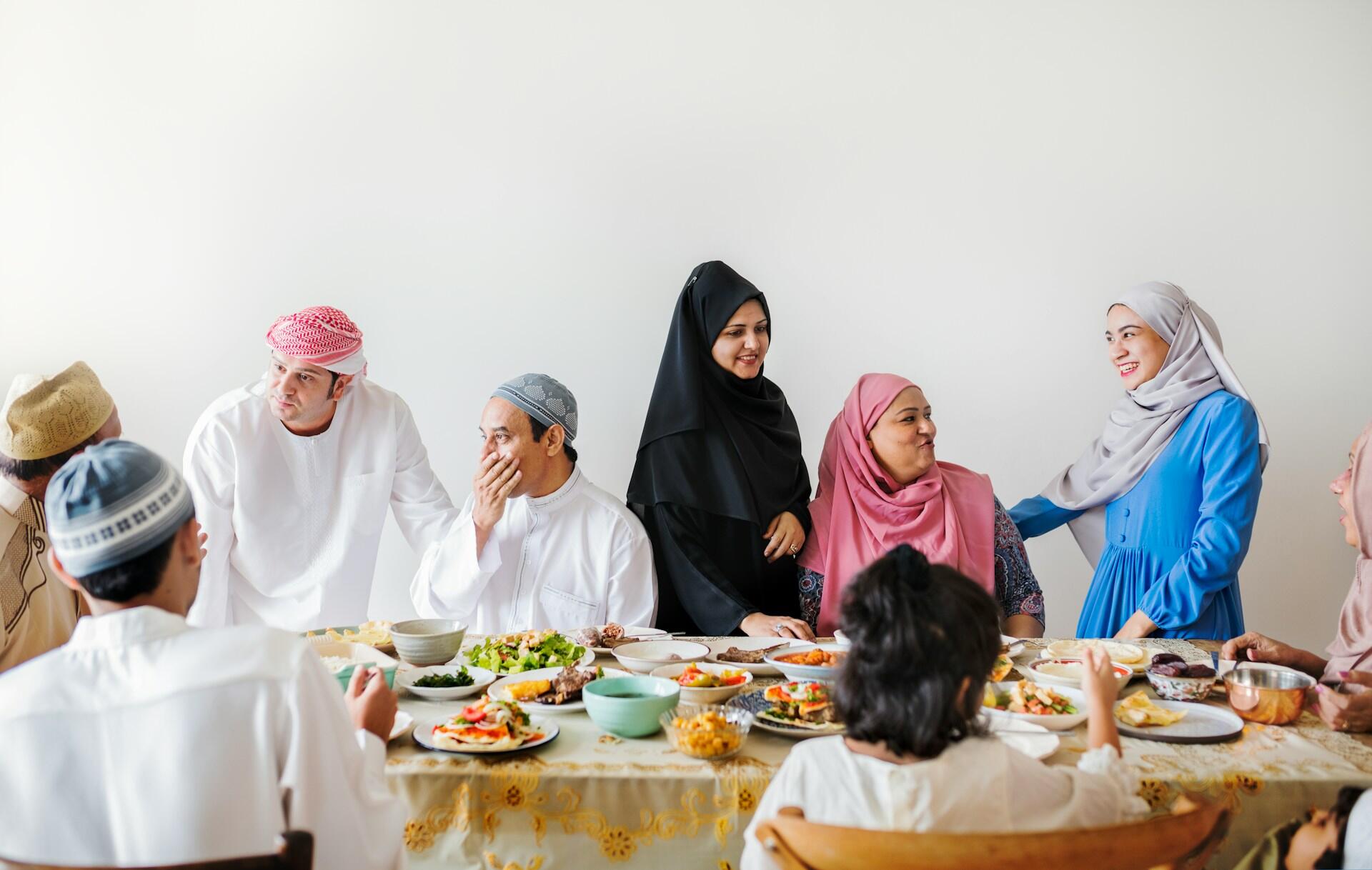Languages are very complicated to learn, there’s no doubt about that. However, you don’t necessarily need to be a fluent speaker to be able to hold a basic conversation. This is true of Arabic too, as sometimes you just need the fundamentals to be able to start communicating.
A few choice general-purpose phrases can be enough to get by in some situations, so we will go over some basic Arabic phrases and other common Arabic phrases here today.

What are some common Arabic phrases for beginners?
Naturally, the best place to start with essential phrases in any language are your “survival phrases”. These are the go-to conversational cornerstones that will let you get by in the most basic sense in Arabic conversation.
Simple things like knowing how to say yes, no, please, thank you, and so on are absolutely necessary for conversation in any language, and no less so in Arabic. With that in mind, we will now go over some Arabic phrases and words that can help you start conversing in the simplest sense:
- Naäam: translates as “yes”.
- Laa: translates as “no”.
- Min fadlik: translates as “Please”.
- Shukran: translates as “thank you”.
- Ӓafwan: translates as “you're welcome”.
- Aläafw: translates as “excuse me”.
- Arjuu almaädhira: translates as “I am sorry”.
- Sabaah alkhayr: translates as “good morning”.
- Masaa' alkhayr: translates as “good evening”.
- Tusbih äalaa khayr: translates as “good night”.
In reality, it’s quite unlikely that these alone will be enough to hold a fluent and helpful conversation, but you’re almost certainly going to want or need some (or all!) of them at some point. To that end, they are definitely worth remembering.
What are some Arabic phrases and sentences for simple conversation?
It’s very difficult to isolate very generalist phrases that can cover you for all possible types of conversation you might encounter in Arabic, but not impossible to prepare you for some common situations.

There are plenty of useful phrases that can be used to at the very least maintain politeness, introduce yourself, and explain your situation to someone. A few of these are listed below:
- Hal tatahaddath al'ingiliiziyya?: translates as “do you speak English?”
- Anaa atahaddath faqat qaliil min aläarabiyya: translates as “I only speak a little Arabic”.
- Maa ismuk?: translates as “what is your name?”
- Ismii Sufyan: translates as “my name is Sufyan”.
- Kayfa haluk?: translates as “how are you?”
- Anaa bikhayr shukran: translates as “I'm fine, thank you”.
- Anaa saäiid jiddan bimuqaabalatak: translates as “I am very glad to meet you”.
- Anaa laa afham: translates as “I don't understand”.
- Madhaa taquul?: translates as “what did you say?”
- Hal yumkinuk attahadduth bibut?: translates as “can you speak more slowly?”
- Anaa afham tamaaman: translates as “I understand perfectly”.
While these Arabic phrases far from cover every possible eventuality of conversation you might find yourself in, they are a good way to introduce and explain yourself to someone.
If nothing else, they can show whoever you are talking to that you aren’t ignoring them, and explain any misunderstandings coming from the language barrier.
What are some Arabic phrases for love?
Arabic is a beautiful language and comes from a beautiful culture of love. As a result, there are lots of ways of expressing love in Arabic. Whether you want Arabic phrases to express love for your family, friends, or partner, there are plenty to choose from that can get your meaning across, depending on the situation.
There are endless ways to express it, but we have compiled a short list of Arabic phrases with meaning and love you can say to your loved ones:
- Habibi/habibti: both literally translate to “my love”. It is a very common way of expressing all forms of love in Arabic, romantic or otherwise. You can easily say this to friends, family, children, or even strangers and acquaintances. When addressing a man, you say habibi, whereas when addressing a woman, you would say habibti.
- Albi: this one actually translates to “my heart”, and is used similarly to habibi, but only really for people much closer to you. Typically, this one would be reserved for your family or loved ones.
- Eini: truly translating as “my eye”, this one might not sound like an expression of love, but be assured that it is. Eyes are considered precious and beautiful in Arabic culture, so this expression carries those same connotations.
These three are mostly all for familial love, although they can be used romantically as well. However, probably the more common situation for expression of love is to a romantic partner, and Arabic has plenty of very beautiful ways of expressing this love as well.
What are the most beautiful Arabic phrases to tell your partner?
Arabic is a language with many ways to express your romantic love for your partner, many of them taking even more meaning than their English counterparts. The reality is that there are more ways of expressing your love than could fit on a list.
Your creativity and capacity to express yourself through words is the only limit! With that being said though, there are some much more common classic ways of saying “I love you” in Arabic:
- Hayati: translates literally to “my life”. This is one of the most common ways couples will express their love for each other.
- Rohi: actually translated as “my soulmate”. Used in much the same way as we would use the translation in English.
- Ameli: translates to “my hope” in English. This one can be used in a non-romantic sense as well, but you’re most likely to hear it used romantically.
- Bahlam feek/bahlam feeki: translating literally to “you’re in my dreams” or “I’m dreaming of you”, this is less of a direct expression of love, but no less potent.
What are some Arabic phrases for travel?
A lot of the most useful Arabic phrases for tourists overlap with the simple and basic conversational ones we have already gone over. Being able to introduce yourself, explain that you speak little Arabic, and so on is very useful for conversing with locals in whatever country you are in.
Of course, that doesn’t stop there being plenty of other more useful and more specific ones for asking about travel:
- Ayna yomkinani al hosool ala sayara ojra?: translates to “where can I get a taxi?”
- Ana ta’h: translates to “I am lost”
- Htaj tabeeb: translates to “I need a doctor”
- Kam thaman haza: translates to “How much is this”
As with all languages, there is no way to simply have a catch-all for any situation you might encounter. The only way to be really prepared is to learn the language in full, but combining these with the ones we went over earlier is a good starting place.
What are some typical Arabic phrases for tattoos?
Arabic script is very aesthetically pleasing, and can often convey much more meaning in far fewer characters than is possible in English. This makes it a very popular choice for tattoos, but you can’t just choose any random text. You want something with meaning and significance to you.
The best way to do this is to choose something very personal, but the second-best way is to find a more common word with connotations and meaning that you resonate with. To aid you in your search, here are a few popular ones:
- الصفاء القوة والشجاعة (Serenity, strength, courage).
- وتكمن قوة لديك في الأشياء الصغيرة (In small things your strength lies).
- اذا الرياح, يركبها (If a wind blows, ride it).
- لا دم لا مجد (No blood No glory).
- واذا كانت الاقدار لا يناسب يا صالح نفسك مصير (If destiny does not fit you, fit yourself to destiny).
- ما فات مات (What is past is dead).
- ارتضاء كنز (Contentment is a treasure).
- كل يوم من حياتك صفحة من التاريخ الخاص بك (Every day of your life is a page of your history).
- لا ترغب الرجل الفقير الغنى (Wishing does not make a poor man rich).
- عند ما تريد لا يحدث, وتعلم كيفية تريد ماذا (When what you want does not happen, learn to want what does).
These all make great Arabic phrases for tattoos you could get, but of course remember that someone might ask you about your tattoo, and in that case you’d be better off making sure you know the language behind it!
Whether you’re talking to a loved one, speaking to travel or getting a tattoo, these phrases can ultimately only capture a snapshot of the huge depth that Arabic language can express. If you want to truly tap into that depth, learning the language is your best option.
However, language learning takes a long time, and can be very difficult. This is where tutoring can come in. Tutoring is well-known to be the most efficient way to learn any language, even more so than any other academic discipline.
This is thanks to both being able to have your sessions tailored directly to you by your tutor, and the ability to speak one-on-one with an expert in the language to improve your conversational skills.

Superprof offers an extensive range of tutors for many languages, including a great wealth of Arabic tutors who are all experts in the language in their own rights.
These tutors can offer you the best, most flexible, and most comprehensive learning experience you will be able to find, tailored specifically to you. With a wide range of teaching styles, you can find the right tutor for you.
This is only made easier by the fact many tutors offer their first lesson for free, to allow you to decide if their teaching style is the perfect fit for your needs.
With all of that said, although it may seem a daunting language, there’s never been a better time to take your first steps into this beautiful language.
Summarise with AI:















